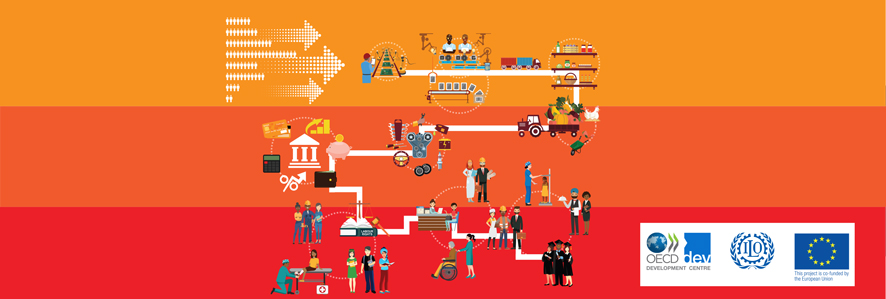Migration and development
ECLM About
|
|
In 2014, the OECD Development Centre, in collaboration with the International Labour Organization (ILO), initiated a three-and-a-half-year project, co-financed by the EU Thematic Programme on Migration and Asylum. The project assesses the economic contribution of labour migration in developing countries as countries of destination. It seeks to arrive at a reliable and evidence-based understanding of how immigration affects the economies of a number of low- and middle-income countries, focusing in particular on the:
- contribution of immigrants to GDP and growth
- impact of immigrants on the labour market and the productive sector
- impact of immigrants on public finances and social services.
The project is being undertaken in ten developing countries: Argentina, Costa Rica, Côte d'Ivoire, the Dominican Republic, Ghana, Kyrgyzstan, Nepal, Rwanda, South Africa and Thailand.
Objectives
- Develop a methodology for assessing the economic impacts of immigration in developing countries in their role as countries of destination, in close co-operation with national authorities, academia and civil society.
- Apply the methodology in and with ten partner countries to measure the contribution of labour migration to their economies.
- Gather data and subsequently draw conclusions about the economic contribution of labour immigration in developing countries.
- Propose policy recommendations and explore the relevance of the findings for other developing countries.
- Disseminate the results of the project to inform EU development co-operation instruments and dialogues as well as global debates and initiatives in the field of migration and development.
Added value
- The ECLM project assesses the economic importance of labour immigration in developing countries where immigrants represent a comparatively large share of the workforce.
- It addresses the economic contribution of labour migration in South-South contexts. This aspect has been scarcely examined and often is poorly taken into account in policy making.
- It fosters strong synergies and co-operation with public institutions, national statistical and data collection offices, as well as with academia and civil society actors in partner countries, particularly those involved in economic, labour and employment affairs.
Related Documents
